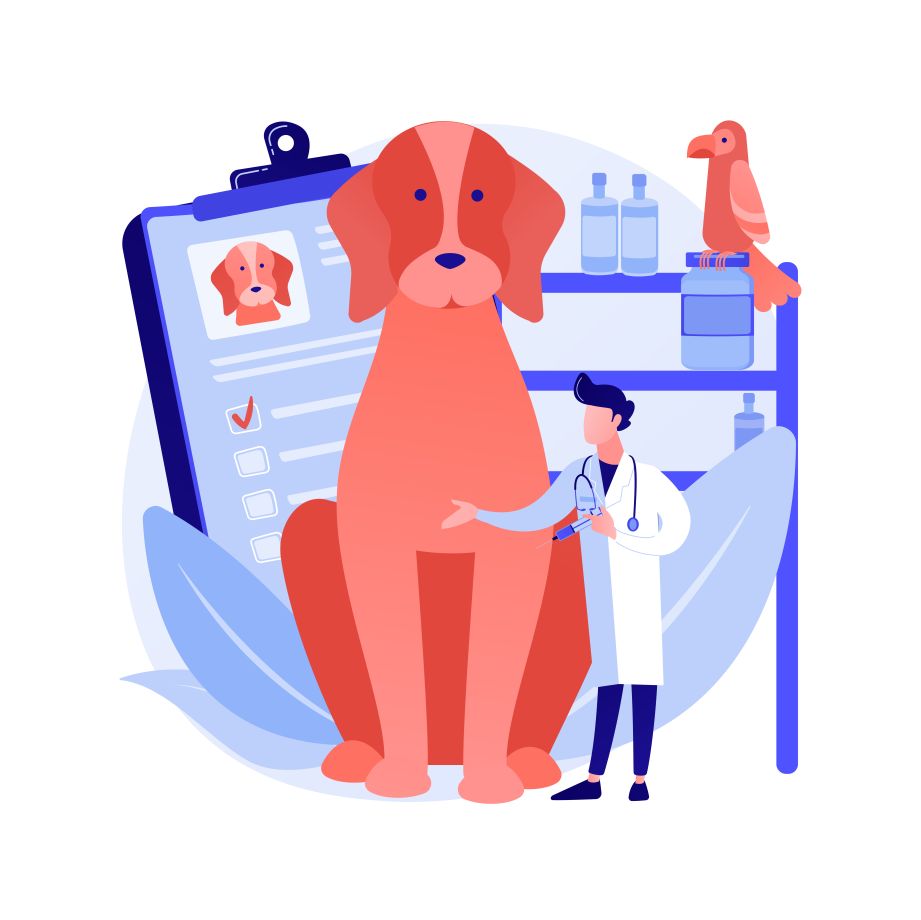When thinking about our dog’s health, exercise, grooming, and good food are normally the things that come to anyone’s mind. One of the most important yet often considered factors in overall well-being and happiness is gut health in any pet’s body. The gut, or gastrointestinal tract, holds trillions of microorganisms affecting digestion, nutrient absorption, immunity, mood, and even behavior. Understanding and supporting your dog’s gut health leads to a happier, more energetic, and longer-living companion.
This article explores why dog gut health matters, how to recognize problems, and the simple steps you can take to support a balanced canine microbiome.
The Gut
A gut is more than just a site for digestion. Inside your dog’s intestinal tract, there is a crowded community of bacteria, fungi, and other microbes that are all collectively known as the gut microbiome. This living, microscopic ecosystem plays an active role in health maintenance-primarily by digesting food and producing essential nutrients, regulating the immune system.
A healthy gut microbiome is diverse and stays in balance naturally. When this balance is disrupted by poor diet, stress, antibiotics, or illness, it can lead to a range of physical and behavioral issues. Improving and maintaining dog gut health is one of the most effective ways to support long-term wellness.
Why Gut Health Matters for Your Dog
1. Improved Digestion and Nutrient Absorption
An ideal gut microbiome digests better normally and allows your dog to absorb nutrients more effectively, like vitamins, minerals, and fatty acids. Poor gut health can cause gas, bloating, diarrhea, constipation, or chronic digestive discomfort. Later nutritional deficiencies may arise and manifest in poor coat quality, low energy, and immune function over time.
2. Stronger Immune System
Almost 70 percent of the immune system sits in the gut. A balanced microbiome trains the immune cells to act appropriately to threats without overreacting. If the gut is unhealthy, your dog may become more prone to infections, allergies, or inflammatory conditions.
3. Better Skin and Coat Health
Skin and coat issues often start right from the gut. Poor digestion or inflammation can make it hard for the body to process nutrients involved in skin cell growth or healthy hair growth. Dogs that have a healthy digestive system usually have healthy and shiny coats, fewer skin problems, and less shedding of hair.
4. Improved Mood and Behavior
The gut and the brain communicate via the gut-brain axis. The good bacteria in the gut manufacture neurotransmitters, like serotonin, which affect mood and behavior. An imbalanced microbiome can potentially lead to anxiety, irritability, and even stress-related behaviors like excessive licking or chewing. Supporting gut health may help your dog feel calmer and more emotionally stable.
5. Reduction in Chronic Disease Risk
Chronic inflammation originates from the dog’s gut. Long-term persistent gut imbalance can turn into disorders such as obesity, diabetes, allergies, and autoimmune diseases. A balanced microbiome can cause inflammation and is supportive of whole-body health, with a lower risk of long-term complications.
Signs Poor Dog Gut Health
Any gut imbalances may be subtle at first, but they often grow into noticeable disorders. Common signs include:
- Frequent diarrhea or constipation
- Excessive gas or bloating
- Vomiting without clear cause
- Dull coat or flaky skin
- Ear infections or recurring skin issues
- Bad breath
- Unexpected anxiety or restlessness
- Food intolerances or allergies
- Low energy or decreased appetite
Recognizing these symptoms early in your dog gut health can help you address issues before they escalate into more serious health problems.

What Causes Gut Imbalance in Dog Gut Health?
1. Highly Processed or Low-Quality Diets
Many commercial dog foods available in the market contain fillers, artificial additives or flavours, and poor ingredients that disrupt the dog’s gut microbiome. Low-fiber diets and a lack of variety can weaken beneficial bacteria.
2. Stress and Anxiety
Like humans, dogs also get stressed by alterations in the environment, loneliness, loud noises, or routines. Stress hormones act directly upon the gut microbiota and result in the inflammation of the gastrointestinal tract.
3. Utilization of Antibiotics
Sometimes, antibiotics are necessary, but they kill off not just the bad gut bacteria, but the good ones, too. And without proper support, the microbiome may not recover as well.
4. Environmental Toxins
House cleaners, lawn chemicals, and pollutants can affect gut health when ingested or absorbed through the skin.
5. Age
Diversity of the microbiome decreases naturally as dogs grow and age, advancing age basically requires gut support.
How to Support a Healthy Dog Gut
Improving your dog’s gut health is not so complicated. You can help your pet thrive both physically and emotionally with just a few consistent healthy habits.
1. Feed a High-Quality, Nutrient-Rich Diet
Choose foods rich in whole ingredients, lean proteins, and a proper balance of fats. Look for foods that have minimal processing and few artificial additives. Many dogs also benefit from diets with fresh ingredients or lightly cooked meals.
Quality ingredients support a better-balanced microbiome, promote healthy digestion, and provide the building blocks for overall wellness.
2. Add Prebiotics and Probiotics
While probiotics introduce healthy bacteria to the gut, prebiotics are the fiber on which those bacteria feed. Together, they ease digestion, regulate bowel movements, and shore up the immune system.
Natural sources of prebiotics include:
- Chicory root
- Pumpkin
- Oats
- Sweet potato
Probiotics can be provided with supplements, goat’s milk, or specially made dog foods that include them.
3. Increase Fiber In The Diet
It helps regulate the digestion process, prevents constipation, and feeds the good gut bacteria. Adding fiber-rich foods like green beans, carrots, or pumpkin can support a healthier microbiome.
4. Limit Processed Treats and Table Scraps
Sugary, fatty, or highly processed treats will not go well with gut bacteria. Try going for natural treats such as freeze-dried meats, fresh vegetables, or simple, single-ingredient snacks.
5. Manage Stress Levels
A calm dog is often a healthier dog. Regular exercise, mental stimulation, consistent routines, and positive training help in maintaining the balance in a dog’s mental and physical health. Limit known stressors for your dog when possible.
6. Use Antibiotics Only When Necessary
Antibiotics may sometimes be indicated, but great care should be taken with their use. Always follow instructions given by your personal veterinarian and consider using probiotics afterwards to help restore gut balance.
7. Hydrate Your Dog
Proper hydration helps digestion and the transportation of nutrients throughout the body. Make sure your dog always has access to clean, fresh water frequently.
8. Consider Digestive Enzymes
Digestive enzymes assist in better digestion of food by your dog in case of sensitivities and chronic digestive problems. In a nutshell, they facilitate easier digestion and improved nutrient absorption.

The Long-Term Benefits of Prioritising Gut Health
Supporting gut health for your dog is not going to be a single fix, it’s a lifetime process that is required to protect their well-being. Dogs who have strong gut health tend to exhibit:
- Fewer digestive problems
- Stronger immune responses
- Reduced inflammation and skin issues
- More stable moods and behavior
- Better weight management
More energy, longer healthier lives by feeding your dog’s gut, you are nurturing the very foundation of your dog’s overall health.
When to Consult a Veterinarian
While many dog gut health issues can be treated at home with simple home remedies, some symptoms require professional evaluation. Contact your veterinarian if your dog experiences below given symptoms:
- Persistent diarrhea or vomiting
- Unexplained weight loss
- Blood visible in stool or vomit
- Severe lethargy
- Loss of appetite lasting more than 24 hours
- A veterinarian can run tests, identify the underlying conditions, and suggest targeted treatment.
Conclusion:
The dog’s gut health is pivotal in every single stage of his life, from digestive to immune, behavioral, or even long-lived. Nourishment with nutrient-rich food, adding prebiotics and probiotics to their diet, keeping the dog on a low-stress lifestyle, and making positive choices for their lifestyle can help transform your dog’s health from the inside out. A healthy gut means a happy, lively dog. And when your dog is doing well, so is the bond between you and them.
That’s why Georgina’s Kitchen, your dog’s gut expert, offers gut-friendly meals, chews, and meal toppers made with ingredients designed to calm, support, and maintain optimal gut health.




